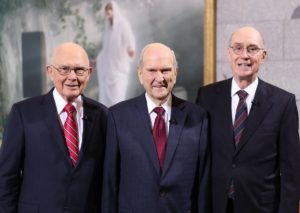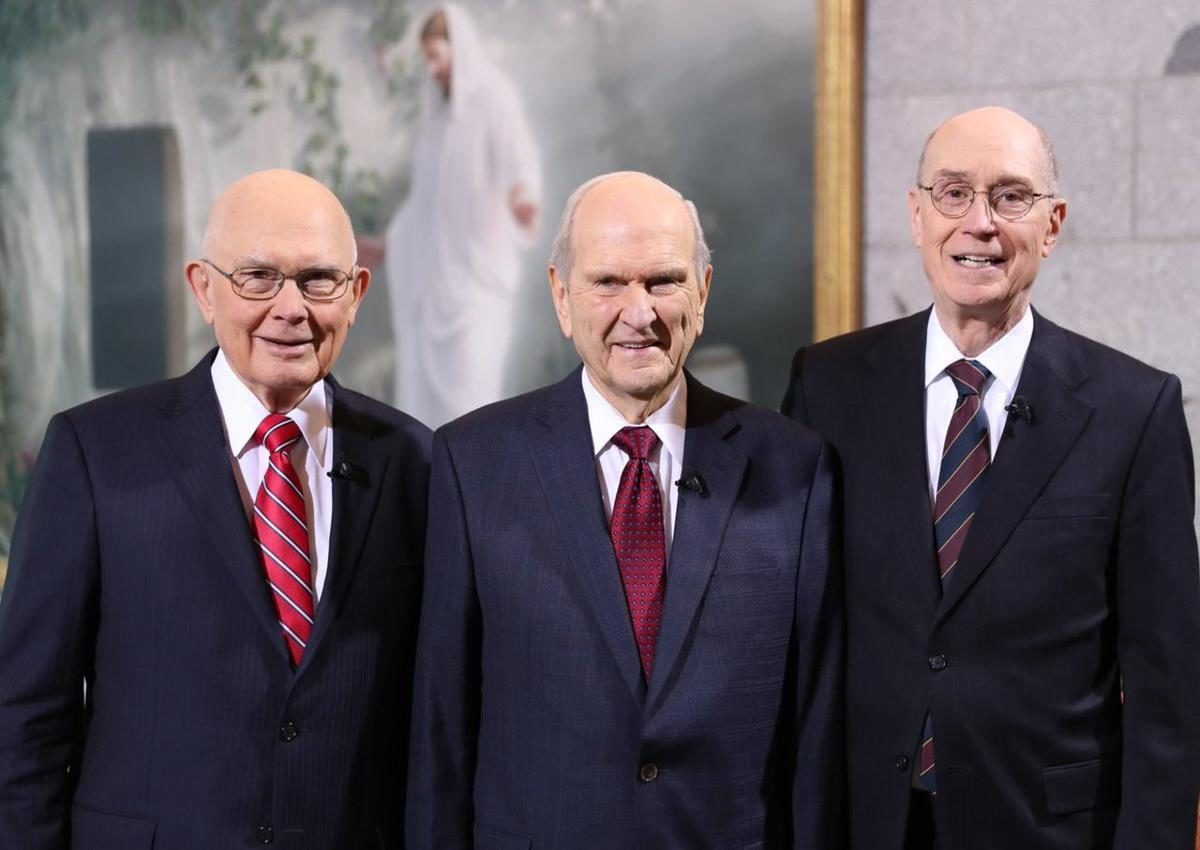 On 14 January 2018, twelve days after the passing of Thomas S. Monson, the long-serving prophet-president of the Church of Jesus Christ of Latter-day Saints, the remaining members of the church’s highest quorums met together to set apart a new prophet-president, Russell M. Nelson, and to reorganize the First Presidency. In a move that surprised many, President Nelson selected Dallin H. Oaks as his first counselor and Henry B. Eyring as his second counselor. Eyring had previously been first counselor in the First Presidency under President Monson, and served alongside Dieter F. Uchtdorf as second counselor, who, with this change now moves back into his seniority slot within the Quorum of the Twelve Apostles (which is currently a quorum of ten following president Monson’s passing along with that of Elder Robert D. Hales a couple of months before.) Two days after the shuffle in the First Presidency, the three members of the First Presidency, with the apostles in the room but (except for one conducting a meeting) not speaking, appeared in front of television cameras, first within the Salt Lake Temple where each shared prepared remarks, and then thirty or so minutes later where they took part in a press conference.
On 14 January 2018, twelve days after the passing of Thomas S. Monson, the long-serving prophet-president of the Church of Jesus Christ of Latter-day Saints, the remaining members of the church’s highest quorums met together to set apart a new prophet-president, Russell M. Nelson, and to reorganize the First Presidency. In a move that surprised many, President Nelson selected Dallin H. Oaks as his first counselor and Henry B. Eyring as his second counselor. Eyring had previously been first counselor in the First Presidency under President Monson, and served alongside Dieter F. Uchtdorf as second counselor, who, with this change now moves back into his seniority slot within the Quorum of the Twelve Apostles (which is currently a quorum of ten following president Monson’s passing along with that of Elder Robert D. Hales a couple of months before.) Two days after the shuffle in the First Presidency, the three members of the First Presidency, with the apostles in the room but (except for one conducting a meeting) not speaking, appeared in front of television cameras, first within the Salt Lake Temple where each shared prepared remarks, and then thirty or so minutes later where they took part in a press conference.
In this episode, Mormon Matters host Dan Wotherspoon, is joined by good friends and fellow church watchers Walt Wood, Rosalynde Welch, and Caleb Jones in a discussion of this new prophet, First Presidency, and role changes within the Quorum of the Twelve. What are their impressions of the two public events? The changes in assignments? This new leadership in terms of what they said and didn’t say in their messaging about what had happened and how the church might move in response to certain areas of concern (as prompted by questions from the press)? The panelists share personal reactions to the news and news conference as well as speak to what they have been hearing among the various church constituencies of which they are a part–most particularly with regard to the reassignment of Elder Uchtdorf and its potential effects on the church, both external and internal. New leadership takes time to get to know, and the panelists share their intentions to be patient and attentive and thoughtful as they hear and sustain these leaders in their new roles. In what resources or impressions are they finding optimism and strength?

